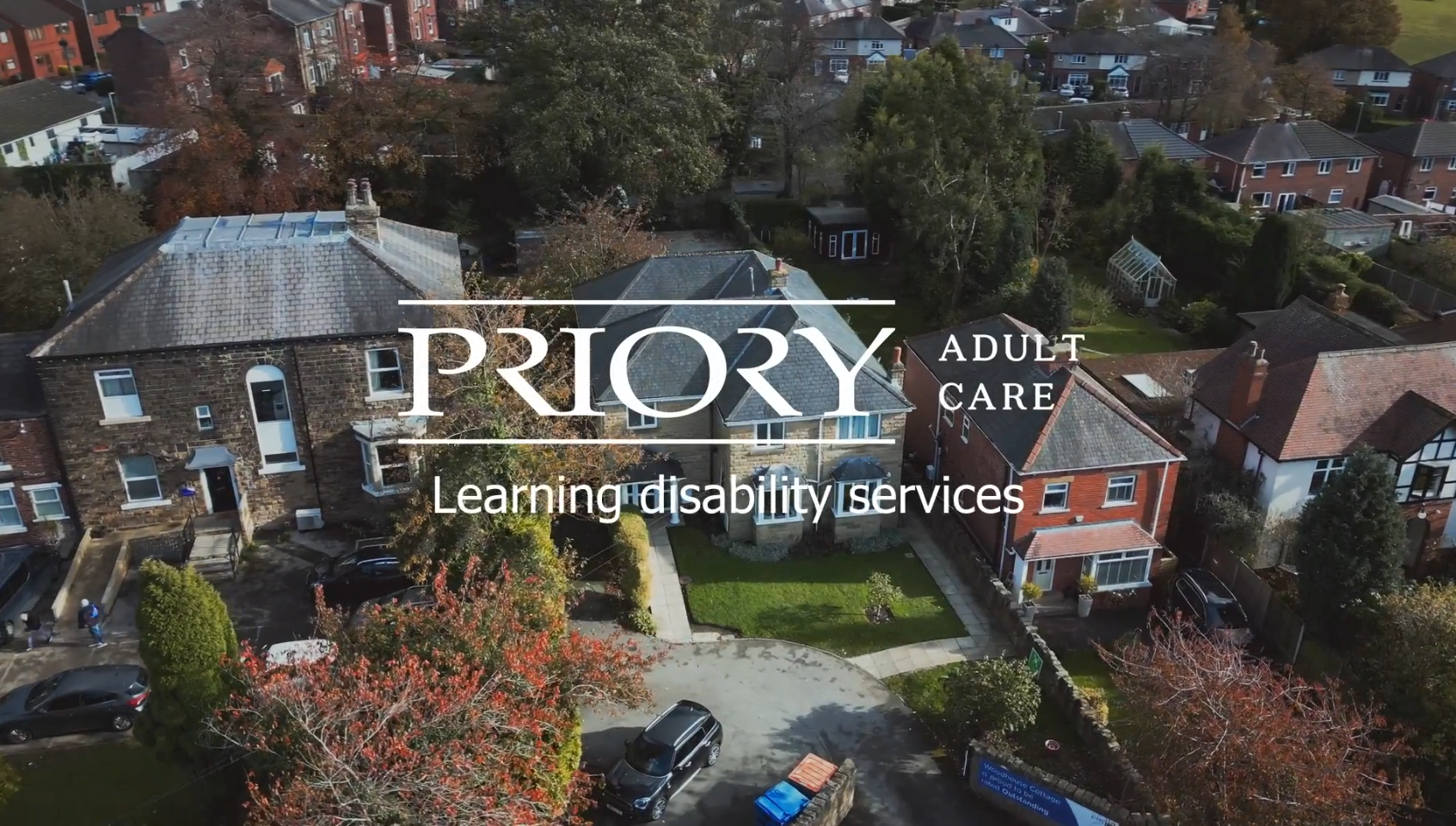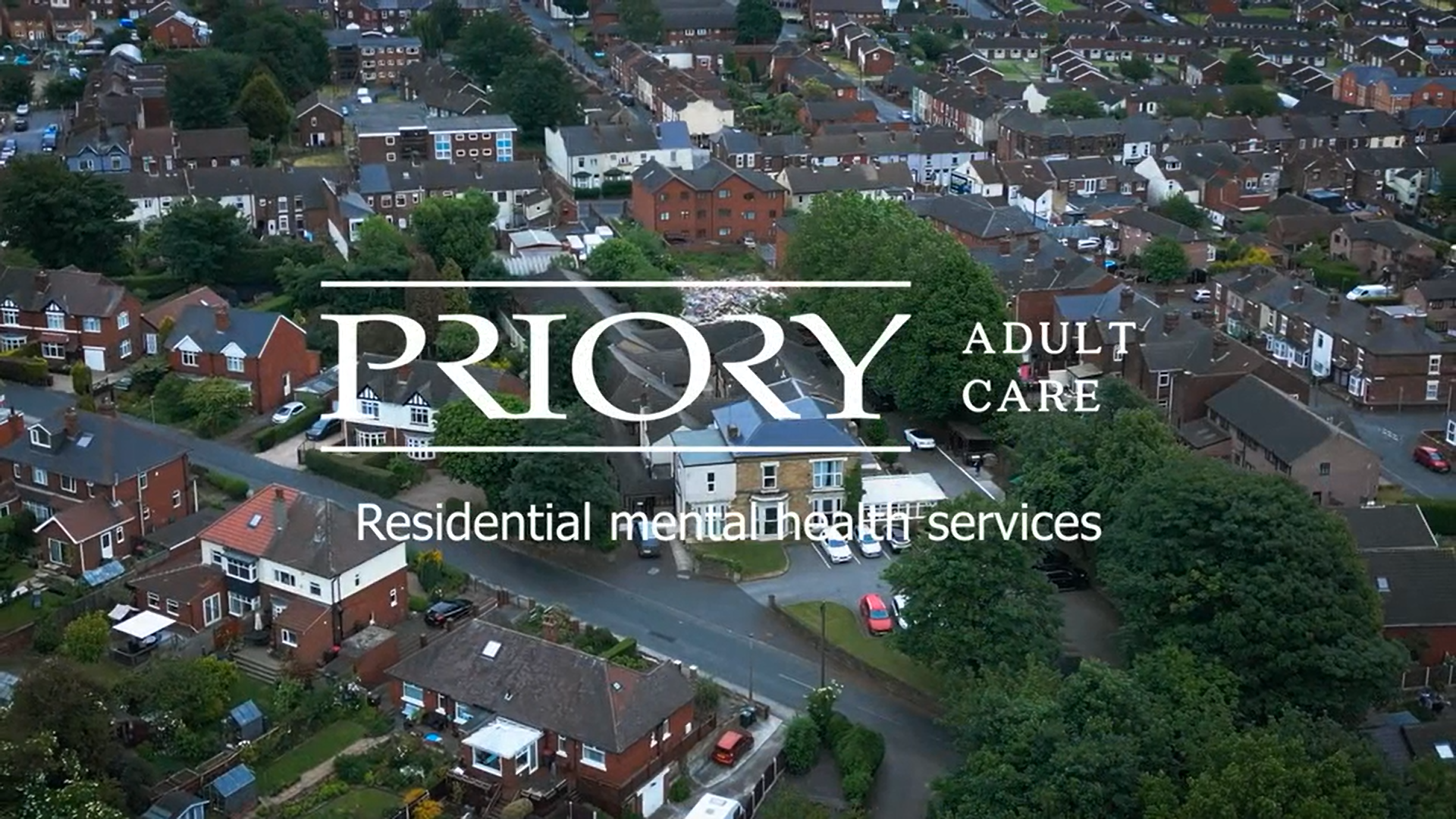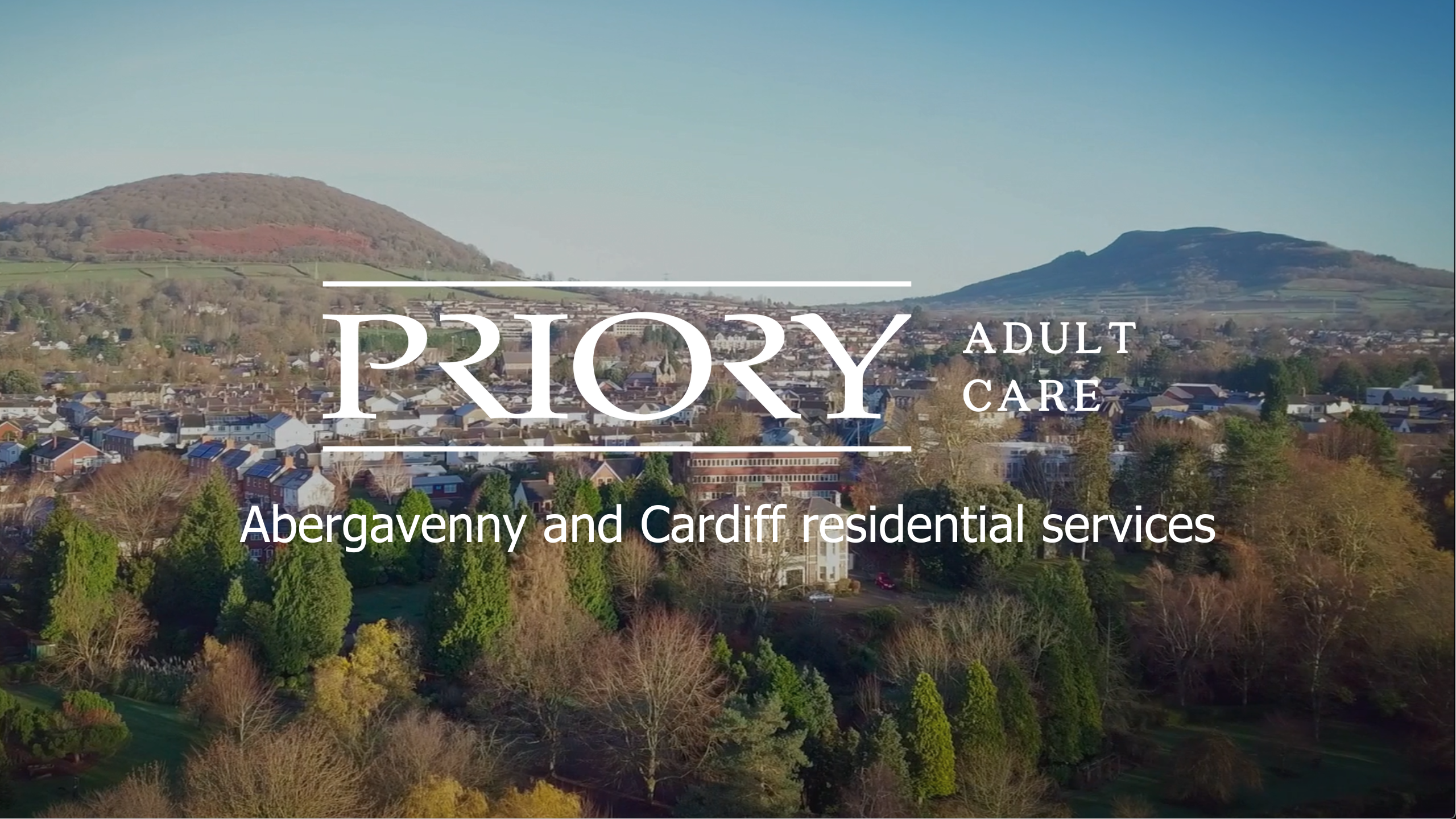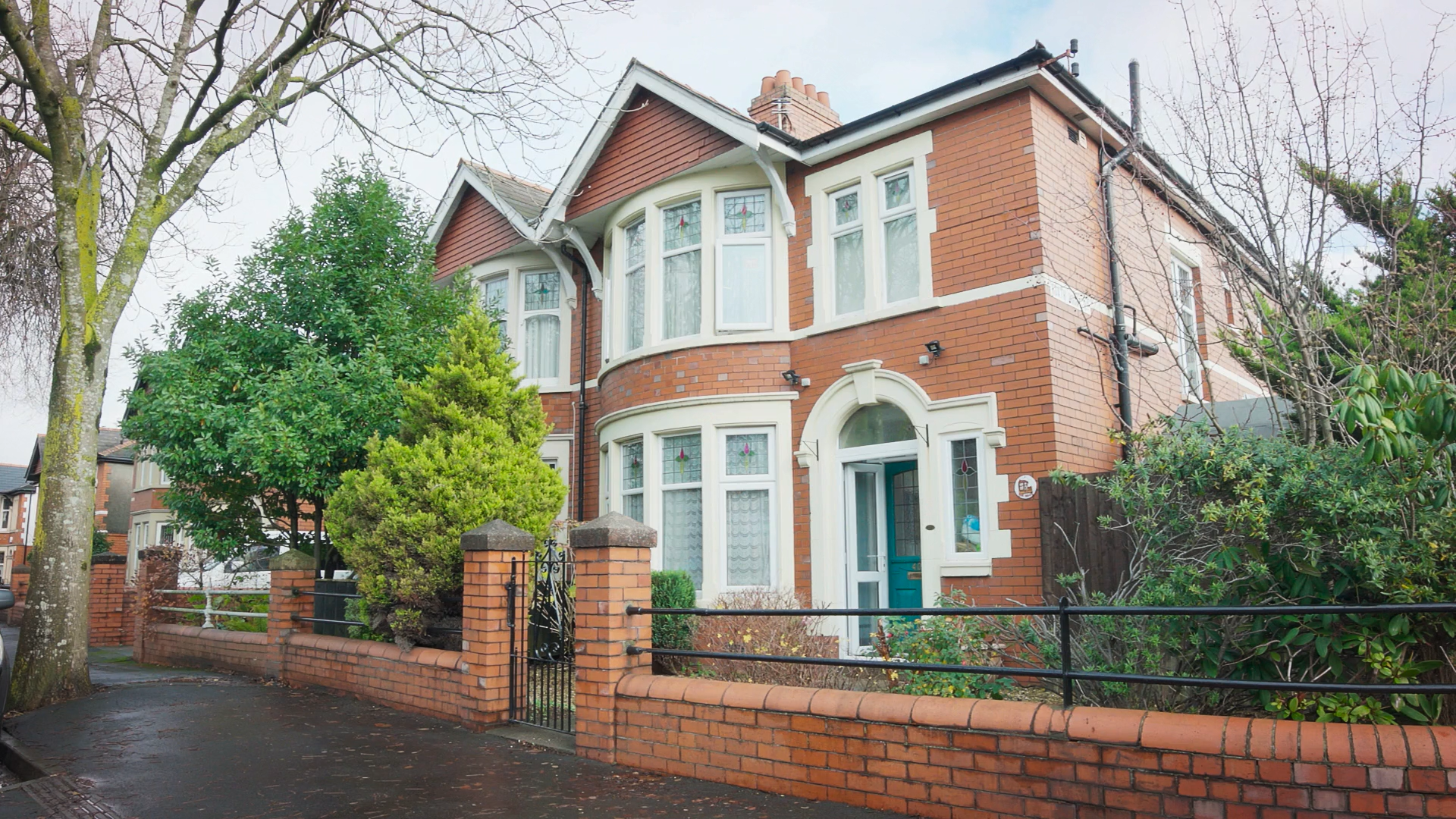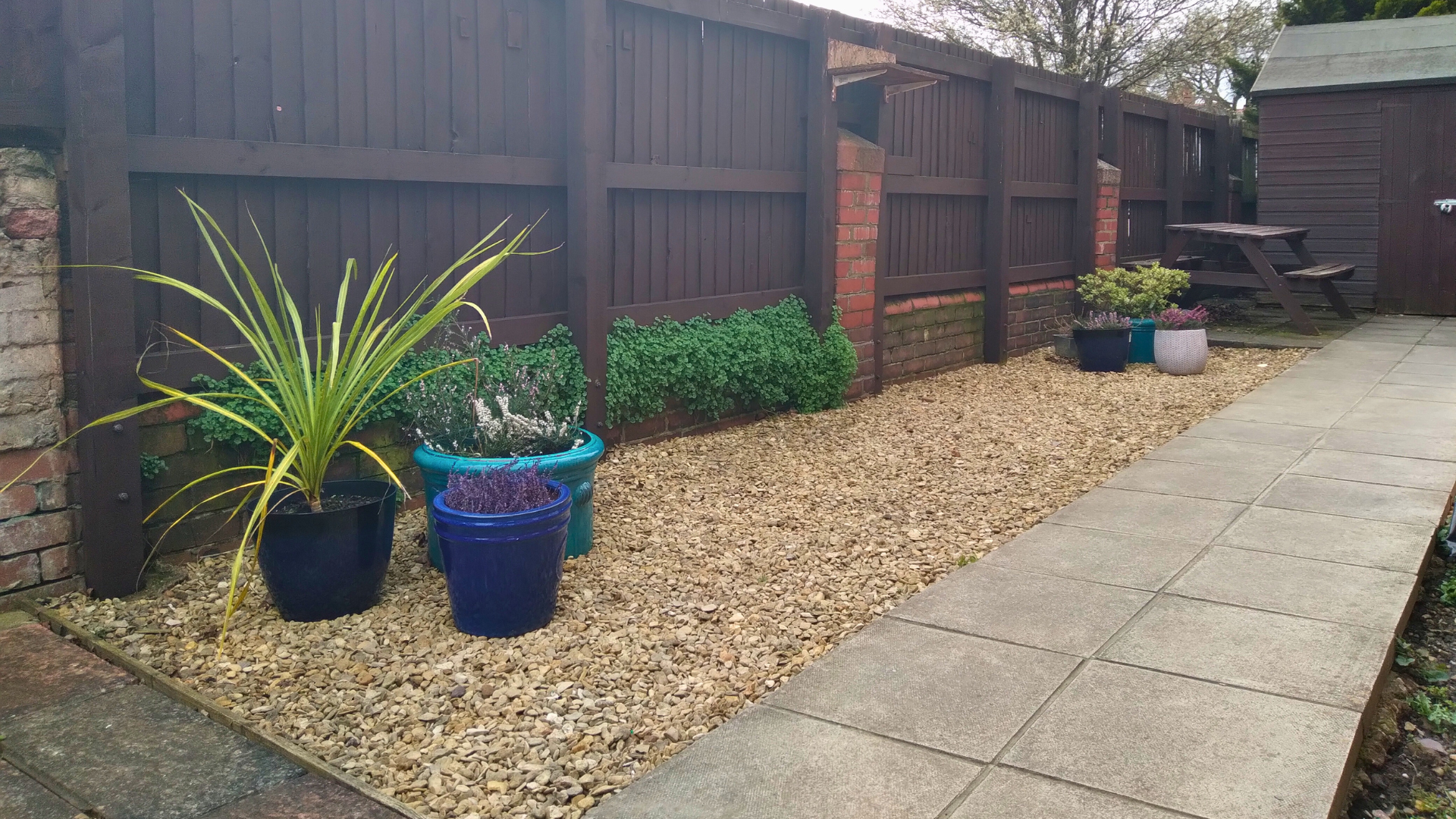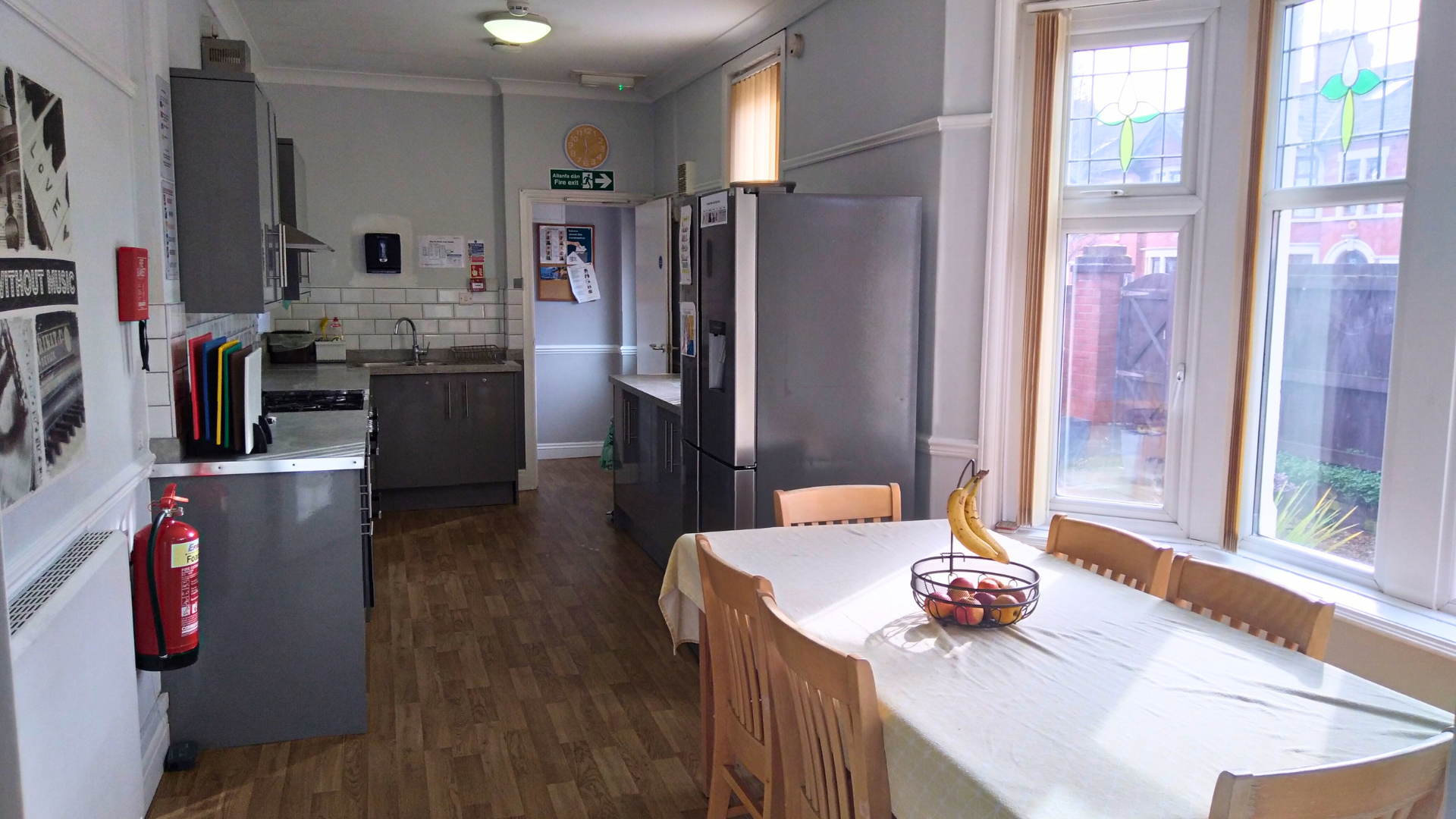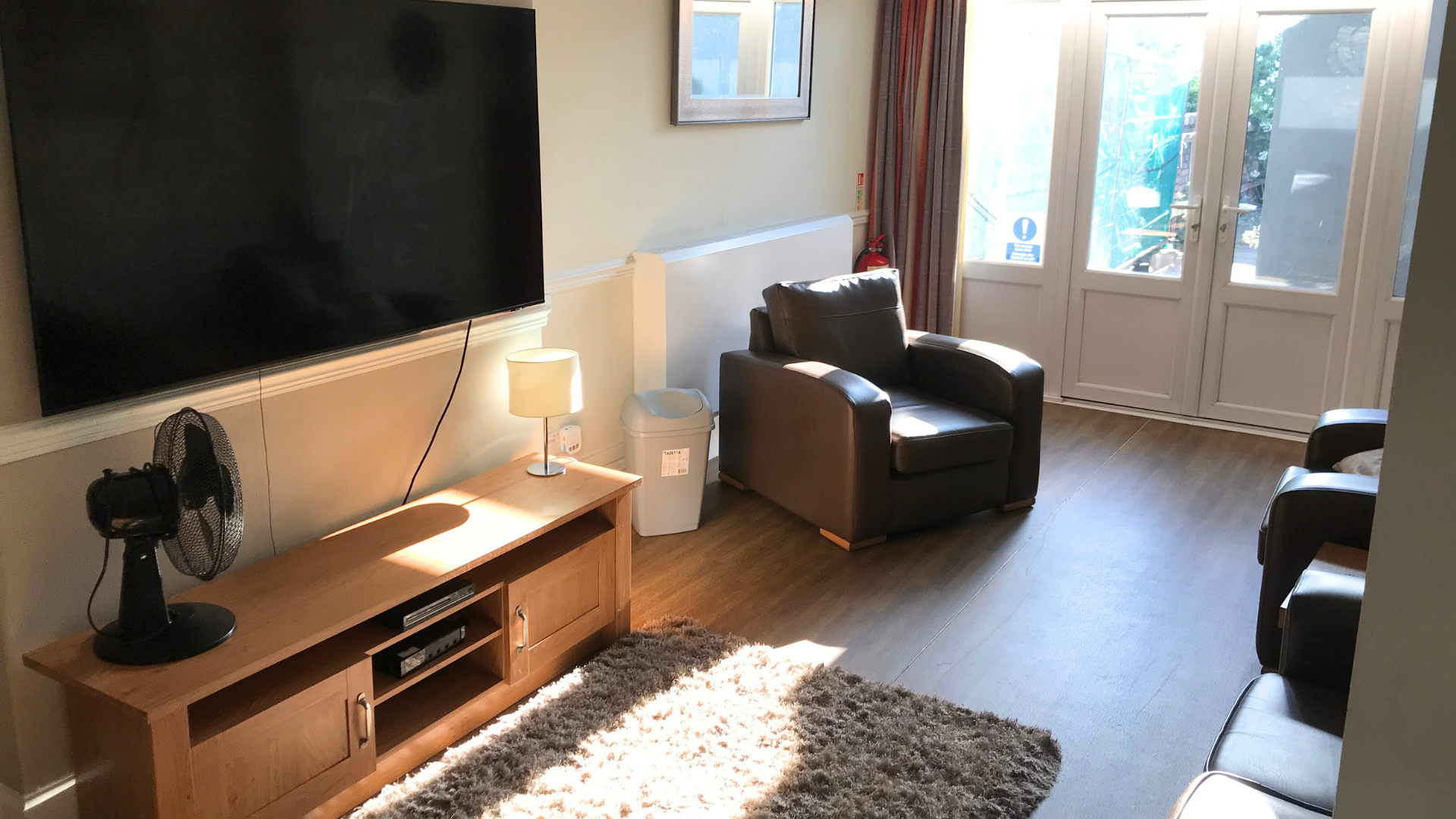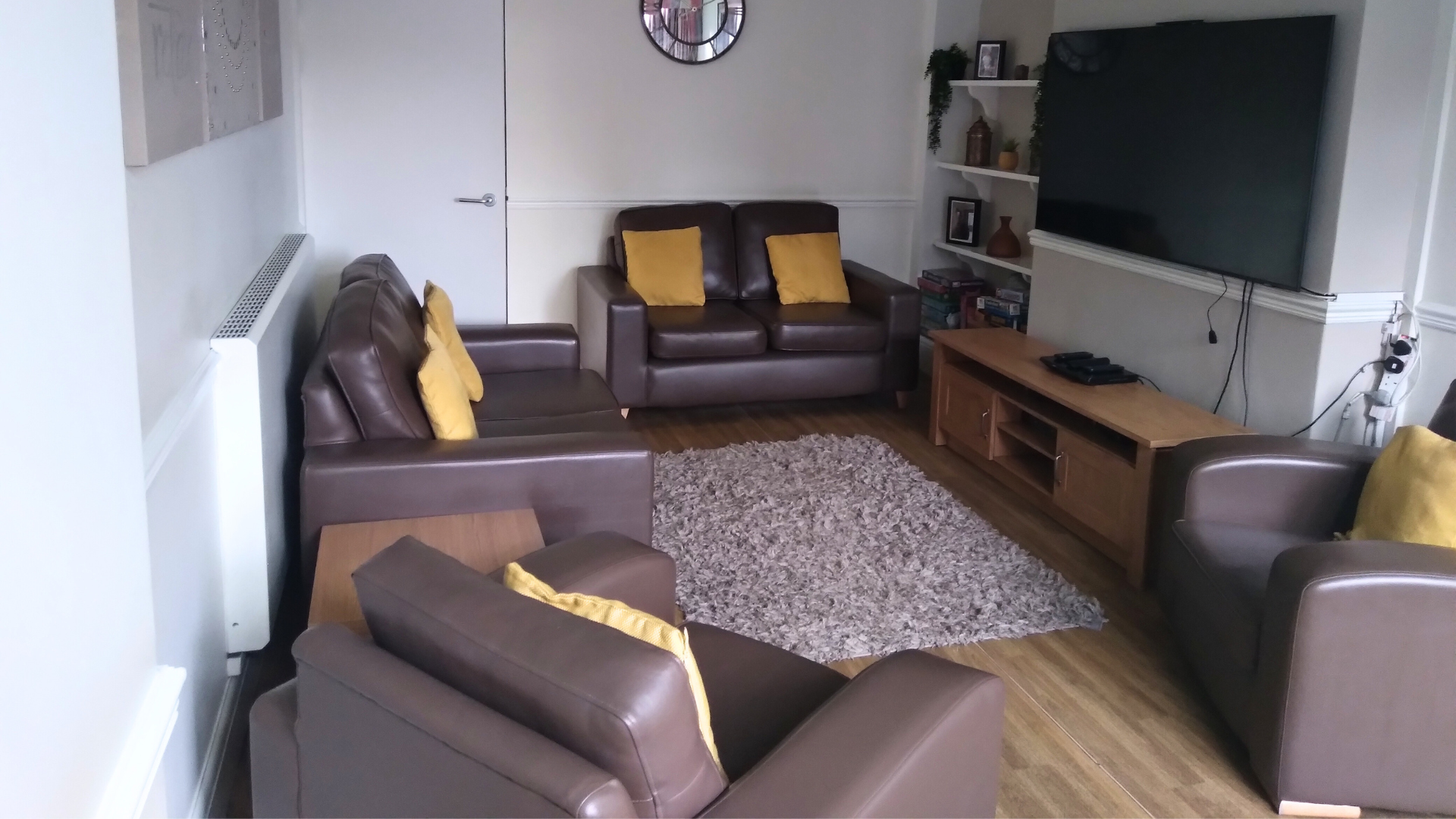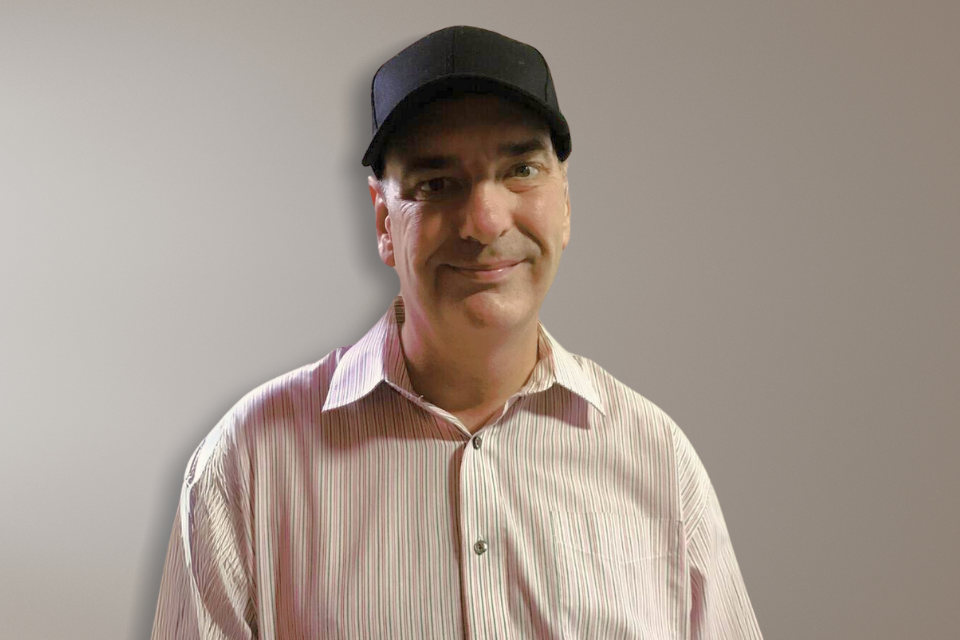About this location
Princes Street is located in Roath, near Cardiff. The home provides residential support with multidisciplinary team (MDT) input, for five males who have a learning disability and mental health needs. We are set in a lovely suburban area, close to shops and not far from the city centre.
Our home is dedicated to providing support and promoting independence in our residents’ day-to-day lives, including with their daily living skills, budgeting skills and behavioural support. Our team are committed to providing the people we care for with a voice and a choice, ensuring involvement in their support.
We can also support autistic people and those who have:
- Difficulties with communication
- Mild to moderate behaviours that challenge
- Epilepsy
- A forensic history
Services at a glance
Click here to enable this content
About our service
Our facilities and environment
Princes Street is a large five-bedroom, semi-detached home. The bedrooms are split over two floors, with two on the ground and three on the first floor. One of the bedrooms is self-contained with its own en-suite facilities. There are also two communal bathrooms for residents to use.
In summary, we offer:
- A large lounge with plenty of seating
- A second large open plan lounge
- Kitchen and dining room
- Communal bathroom
We also have our own garden, complete with:
- Patio
- Communal seating
Our bedrooms
Our approach to support
Everybody who lives at Princes Street has their own person-centred care plan, which is co-produced with input from the individual, their family members and professionals involved in their care. We aim to help everyone in our care to make their own choices about the support they receive. This may include support in a number of areas, such as going out in the community, personal care, cooking and cleaning, managing finances and maintaining family relationships.
Our support approaches at Princes Street include:
- Occupational therapy
- Psychology
- Psychiatry
These therapies are offered through our in-house MDT. We can also access additional support through referrals to community practitioners.
The lengths of the placements that we offer at Princes Street can be transitional, respite, short, medium or long-term residential, depending on the needs of each person.
Activities
Everyone who lives at Princes Street has their own personalised activities planner and are encouraged to take part in activities which are meaningful and fulfilling to them. Our dedicated team organise a variety of activities at the home, as well as out in the community. Current activities include:
- Disco classes
- Art class
- Pottery
- Sports club
- Social groups
- Cinema
- In-house games
We focus on supporting our residents to grow their independence. For some people, this may mean developing their daily living skills within the home. For others, this could be accessing work or educational opportunities in the local community.
Exclusion profile
- Those who pose a risk to others in communal living areas
- Females, as we are a male only home
- Those with prominent or current suicide or self-harm risk
Pathways
Through our network of healthcare, residential and supported living facilities, we provide unique care pathways which help the people we support to progress towards greater independence. Every individual we support is provided with a bespoke pathway plan, tailored according to their individual needs. We aim to ensure that each person is supported to live a fulfilling and active life in the community.
Our team
Our highly experienced MDT consists of:
- Service manager
- Deputy manager
- Support workers
- Senior support workers
- Psychiatrist
- Psychologist
- Occupational therapist (OT)
Our team receive specialist staff training, designed to meet the needs of each individual we support. This includes autism specialist training and PROACT-SCIPr-UK® training.
A message from our site leader

Here at Princes Street, our dedicated team have worked hard to develop a support system that fosters individuality, choice and most importantly, laughter. Each resident is enabled to follow their own meaningful routines and activities, catered to their own abilities, and wishes. Here we understand that support shouldn’t be a series of requests and demands, instead support should be a series of options and ideas; an individual’s choice is paramount when developing their support.
Princes Street’s site leader
Comments from our residents and their family and friends
I like it here. Staff always look after me
Jason's story
Family and friends FAQs
How does home leave work?
We can support home visits, but this is dependent on each resident and their treatment, including any legal conditions. Frequency of home visits would be dependent on factors like the location of the home.
Can friends and families visit?
Family and friends are welcome to visit the service. We do ask that we are informed in advance of all visits, so we can facilitate them.
Will I be involved and kept up to date with the progress of my loved one’s care and support?
Yes, family involvement is encouraged, dependant on our residents choice and consent.
Will my loved one be able to have a phone or call me?
All our residents are supported to call their loved ones, via phone or video call. Family and friends are also able to call as often as they like.
What are the bedrooms like?
Rooms are spacious and can be decorated to meet the personal preferences of our residents. Standard furniture is provided, and people are welcome to bring additional furnishings.
Are external doors kept locked?
This is not a locked door service; doors are only locked at night for security reasons.
What do residents eat and how do meal times work?
Residents are given choice regarding meals and supported to eat a healthy balanced diet. All residents take it in turns to cook a meal one night of the week, this helps them develop daily living skills and facilitates everyone enjoying a variety of foods.
How does laundry work?
We have a laundry room which can be used at any time, and our staff are able to support residents to do their own laundry, as needed.
Who does the housekeeping and domiciliary tasks?
Our residents are encouraged to participate in household tasks and our staff are able to support residents to do this. The people who live here take pride in their environment, and contribute to its upkeep.
Is there anything they can’t bring or have?
Residents are not allowed to bring illegal substances onto the premises. Other items of concern would be discussed on a case-by-case basis.
How do activities work?
The activities we organise are based on our resident’s preferences. Current activities undertaken by residents include: disco classes, art class, pottery, sports club, social groups, cinema, night outs, and board game sessions. Our OT works with residents to search for alternative activities that they find enjoyable and fulfilling.
How will residents be supported with their behavioural needs?
We use the PROACT-SCIPr-UK® framework, which means we focus on proactive strategies, rather than physical intervention. We require our care plans which include restrictions to be assessed frequently, for example procedures for interventions such as pro re nata (PRN) medication are regularly reviewed and removed, where possible.
Do residents and families have an input into the care plans?
Yes, we encourage families to be involved with the care plans. We value this important input where consent has been given. Residents all have a say about the care they receive, and we listen to feedback given.
What are the car parking facilities?
We have a large courtyard, allowing room for car parking.
What is the smoking policy?
We have a designated area in the courtyard for residents to smoke or to vape.
What are your fees and how are they funded?
Our fees can vary, and are based on an assessment of each individual's needs. Many people are eligible for financial help towards the cost of support, and this funding can be accessed by contacting your local authority. Once funding has been agreed, we will work with your local care team to put together a bespoke package of care. Please note, referrals for NHS or Local Authority funded services must come from a referring organisation.
How to make a referral
Our service provides high quality support to people with varying levels of need. Referrals can be made through the individual’s social care team or, if relevant, their local health authority. If you are a professional looking to make a referral, please call us or fill in our enquiry form.


